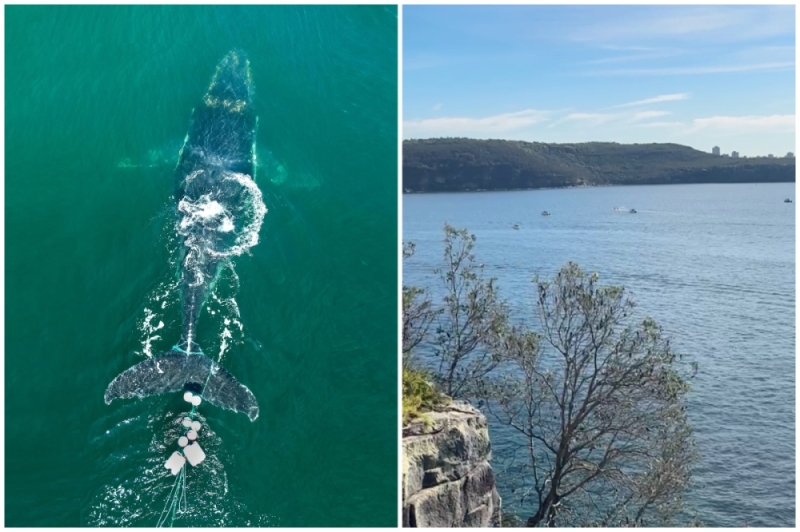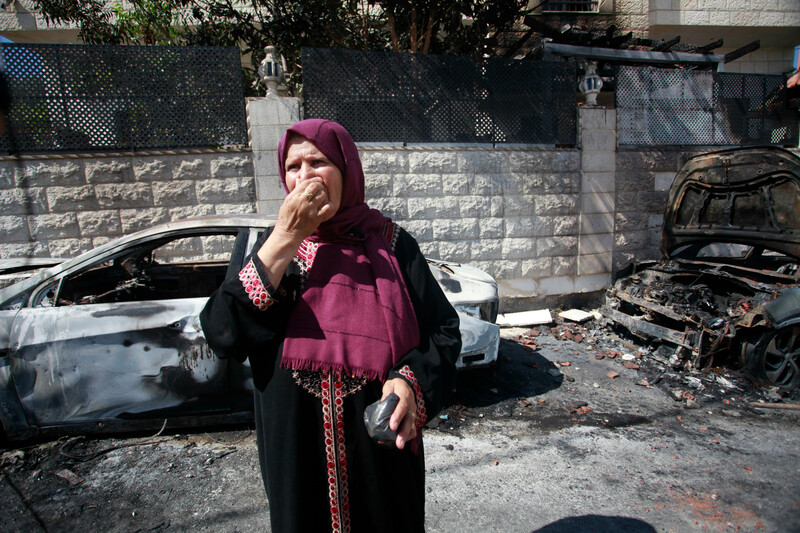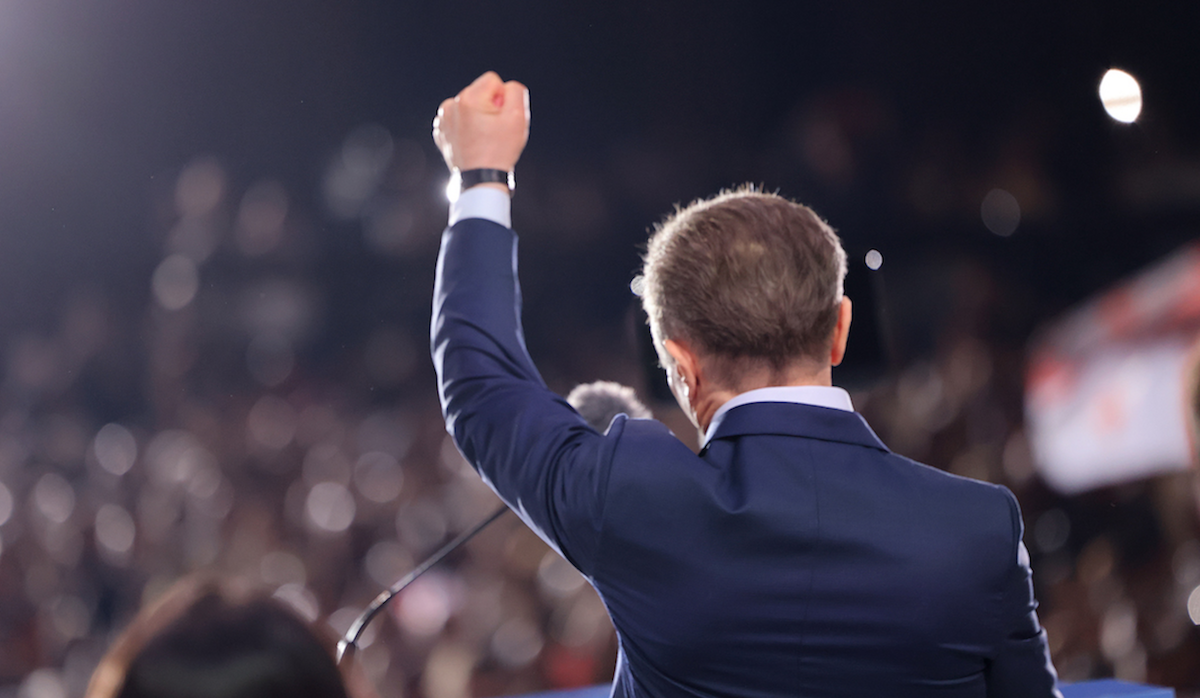UN experts challenge Vietnam’s treatment of Montagnard minority
2024.08.23
 The trial of about 100 Montagnards in Dak Lak on Jan. 16, 2024.STR/Vietnam News Agency/AFP
The trial of about 100 Montagnards in Dak Lak on Jan. 16, 2024.STR/Vietnam News Agency/AFPUnited Nations experts are calling on Vietnam to answer their concerns over the trial of 100 Montagnards in January, in connection with a 2023 attack on government offices in which nine people were killed.
The special rapporteurs wrote to the government on June 14, and released the letter after a customary 60 days.
They said there were indications the Jan. 20 trial in Dak Lak did not meet fair trial standards under international human rights law.
They addressed allegations of illegal arrest and detention in connection with the case, torture and ill-treatment of Montagnard suspects, unexplained deaths in custody, allegations of terrorism, restrictions on freedom of expression and media participation, discrimination against indigenous peoples and repression of Montagnards’ religion and beliefs.
Montagnard is a term coined by French colonialists to describe a grouping of about 30 ethnic minorities in Vietnam’s Central Highlands. Since 1975, after the Vietnam War, the government has implemented a migration policy, bringing more than three million people to the region.
According to government statistics in 2019, indigenous Montagnards accounted for 39% of Dak Lak province’s total population of 5.8 million.
The January trial followed attacks on June 11, 2023 when dozens of Montagnards, divided into two groups, attacked the headquarters of the People’s Committee and the police of Ea Tieu and Ea Ktur communes in Dak Lak province. Four police officers, two commune officials, and three civilians died in the attacks.
The trial was attended by 94 defendants with19 lawyers, while six defendants were tried in absentia. U.N. experts noted that the six had no legal representation in court.
At the end of the trial, 10 people were sentenced to life in prison on charges of terrorism against the government.
Forty-three people received prison sentences ranging from six to 20 years on terrorism charges. A further 45, including the six tried in absentia, received prison sentences ranging from three-and-a-half to 11 years on terrorism charges. Two others were sentenced to prison terms ranging from nine months to two years on charges of concealing criminals and helping others illegally enter and exit Vietnam.
The rapporteurs said most coverage by Vietnamese media relied on information provided by the Ministry of Public Security under the direction of the Central Propaganda Department, leading to censorship and self-censorship.
“Senior Vietnamese government officials made highly prejudicial pretrial public comments about the defendants’ perceived responsibility for terrorist crimes, and state-controlled media (including television) both reported on the defendants as ‘terrorists’ and published images of some of the recently captured defendants,” the experts said in their letter.
The rapporteurs also questioned the use of a “mobile court” for the Dak Lak trial.
“Vietnamese law has never sought to regulate the use of mobile court procedures, such that they lack an adequate legal basis and are necessarily arbitrary in operation,” they said, noting that the court didn’t follow procedures prescribed by international law, which requires similar cases to be treated the same way.
“An apparent purpose of ‘mobile trials’ is to ‘educate’ the public about the law,” the rapporteurs said.
“However, we are concerned that the proceedings did not perform a legitimate educative function but resulted in publicly embarrassing, shaming, humiliating or degrading the defendants and their families before other members of their community.”
On Aug. 15, Vietnam’s Permanent Mission to the U.N. requested a two-month extension to respond to the questions in the letter. The Ministry of Foreign Affairs did not answer RFA’s calls seeking comment.
RELATED STORIES
Thai policeman said ‘no choice’ but to arrest Montagnard
Vietnam labels 2 foreign-based groups ‘terrorist organizations’
10 defendants given life sentences for Dak Lak attacks
‘Ethnic divisions’
The U.N. experts said they were also concerned the defendants didn’t have adequate access to lawyers during their long detention and when the trial took place, only 19 lawyers were assigned to 100 defendants who didn’t have the right to choose their own lawyers.
They also said there were indications that some arrests weren’t based on reasonable grounds backed with evidence.
“We are concerned that the heavy security response after the 11 June 2023 attacks, including the state’s co-option of civilian vigilantes (of majority Kinh ethnicity), may have resulted in the arrest of innocent people,” they said.
“These risks were accentuated by ethnic divisions, with Montagnards being publicly blamed by state officials and media, encouraging potential profiling and arrests on the basis of minority ethnic status. We note that arrests of detention on discriminatory grounds are arbitrary and unlawful.”
Vietnam accused all those involved of having links with U.S. and Thai-based Montagnard organizations who they say helped plan the 2023 attack..
On March 6, 2024, the Ministry of Public Security designated the group Montagnards Stand for Justice, or MSFJ, a terrorist organization. It was established in Thailand in 2019 with a representative in the U.S.
Vietnamese authorities said the group operates by spreading propaganda to recruit members, providing training and funding attacks with the aim of establishing an autonomous state in the Central Highlands.
The government said MSFJ organized the 2023 attack with the aim of establishing Montagnard state.
MSFJ rejected the charges saying they are aimed at preventing the group from documenting rights abuses against Montagnards.
Founding member Y Quynh Bdap, who has been living in Thailand since 2018, is on remand in Bangkok, facing possible extradition at Vietnam’s request, to serve a 10-year sentence for “terrorism” in connection with the attack. Vietnam sent public security officers to attend his trial.
The rapporteurs said they were worried for the safety of Montagnards in Thailand given reports of illegal abductions by Vietnamese security agencies of activists such as blogger Truong Duy Nhat and freelance journalist Duong Van Thai.
They said international human rights law prohibits forcing people back to places when there are grounds for believing they would be at risk of “irreparable harm on account of torture, cruel, inhuman or degrading treatment or punishment, or other serious human rights violations.”
They concluded by noting signs of continued discrimination against Montagnards in the Central Highlands.
“The excessive response to the 11 June 2023 attack, the unfair mass trial of January 2024, the listing MSFJ as terrorist in March 2024, and the alleged intimidation of Vietnamese refugees in Thailand in March 2024 seem to be part of a larger and intensifying pattern of discriminatory and repressive surveillance, security controls, harassment and intimidation against the Montagnard indigenous minority peoples.”
Translated by RFA Vietnamese. Edited by Mike Firn.









